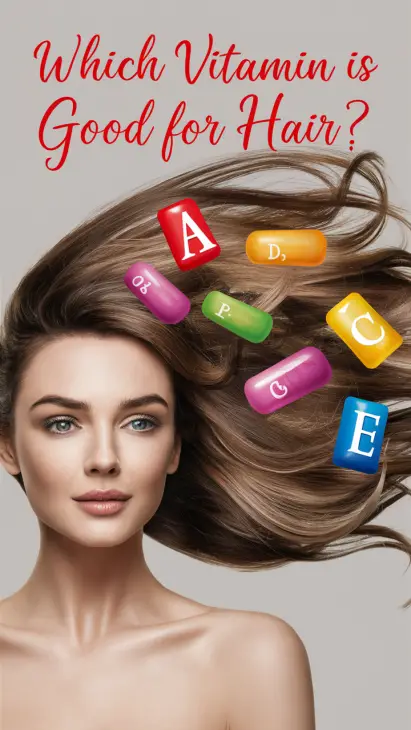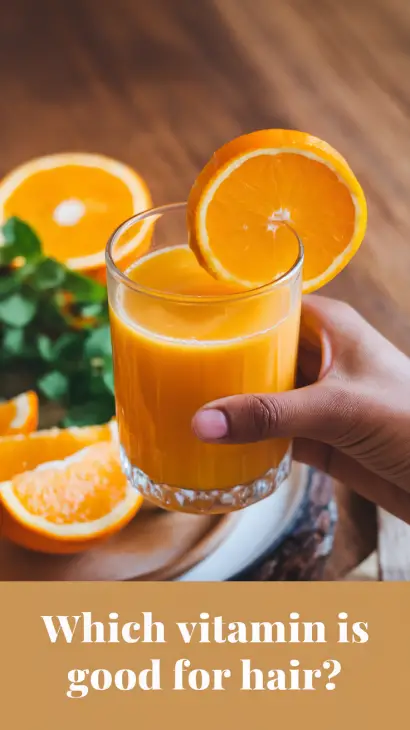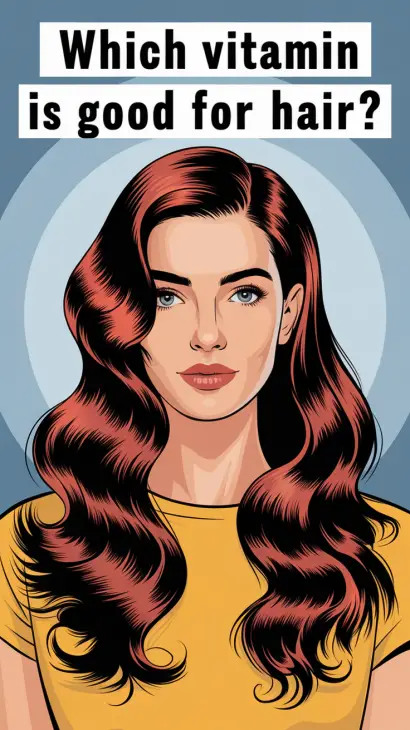Which Vitamin Is Good for Hair? Comprehensive Insights for Healthy Locks
Our hair often reflects our overall health, and understanding which vitamins nourish it can make all the difference. Let’s explore the vitamins essential for luscious locks and practical ways to incorporate them into your daily routine.
Why Are Vitamins Crucial for Hair Health?
Hair health depends on the proper functioning of hair follicles, which thrive on nutrients. Without sufficient vitamins, hair may become brittle, lose its shine, or fall out prematurely. By ensuring you get the right vitamins, you can promote strong, shiny, and healthy hair growth.

Essential Vitamins for Hair
Vitamin A: The Scalp’s Natural Moisturizer
Vitamin A supports sebum production, which keeps the scalp moisturized and prevents hair breakage. However, too much Vitamin A can lead to hair loss, so balance is key.
| Benefits | Sources |
|---|---|
| Prevents dryness | Carrots, sweet potatoes, spinach |
| Strengthens strands | Kale, apricots, red peppers |
Biotin (Vitamin B7): Strength and Growth
Biotin, part of the B-complex vitamins, plays a significant role in strengthening hair and stimulating keratin production.
| Benefits | Sources |
|---|---|
| Promotes thickness | Eggs, almonds, walnuts |
| Encourages growth | Sweet potatoes, mushrooms |
Vitamin C: An Antioxidant Powerhouse
Vitamin C protects hair follicles from free radical damage and supports collagen synthesis, ensuring the structural integrity of each strand.
| Benefits | Sources |
|---|---|
| Prevents breakage | Oranges, strawberries, kiwi |
| Boosts shine | Bell peppers, broccoli, guava |
Vitamin D: The Hair Growth Vitamin
Vitamin D is necessary for hair follicle cycling. A deficiency is often linked to alopecia or thinning hair.
| Benefits | Sources |
|---|---|
| Stimulates growth | Fortified cereals, egg yolks |
| Repairs follicles | Sunlight, fatty fish |
Vitamin E: The Shine Enhancer
Vitamin E improves blood circulation in the scalp, ensuring that hair follicles receive nutrients and oxygen.
| Benefits | Sources |
|---|---|
| Boosts elasticity | Almonds, sunflower seeds, avocado |
| Fights oxidative stress | Spinach, peanuts, olive oil |
Iron and Zinc: Critical Minerals
Though not vitamins, these minerals are essential for maintaining healthy hair. Iron ensures oxygen reaches follicles, while zinc aids in cell repair and growth.
| Mineral | Benefits | Sources |
|---|---|---|
| Iron | Prevents hair loss | Red meat, lentils, tofu |
| Zinc | Repairs hair damage | Pumpkin seeds, chickpeas |
Recognizing Hair Nutritional Deficiencies
- Dry and Brittle Hair: Linked to low Vitamin E or A levels.
- Thinning Hair: Often caused by a lack of Biotin or Vitamin D.
- Frequent Breakage: Suggests a deficiency in Vitamin C.
Practical Tips to Incorporate Vitamins
- Balanced Diet: Include a variety of fruits, vegetables, lean proteins, and nuts.
- Supplements: Consult your healthcare provider before starting supplements.
- Topical Solutions: Use hair oils and serums enriched with vitamins like E or Biotin.
Comparison of Natural vs. Synthetic Sources
| Aspect | Natural Sources | Synthetic Supplements |
|---|---|---|
| Absorption | High | Moderate |
| Risk of Overdose | Low | Possible with excessive use |
| Accessibility | Seasonal availability | Convenient year-round |
Common Myths About Hair Vitamins
- “More is better.”
Excessive intake, especially of fat-soluble vitamins, can cause toxicity and harm. - “Topical vitamins are enough.”
Topical products complement nutrition but cannot replace dietary intake. - “Results are instant.”
Hair health improvements often take 3-6 months of consistent care.
FAQs
1. How long until vitamins improve hair health?
Typically, visible results appear within 3-6 months.
2. Are supplements necessary?
A balanced diet suffices for most people, but supplements can help address deficiencies.
3. Which vitamins should I focus on for hair growth?
Biotin, Vitamin D, and Iron are especially important for growth.
4. Can I overdose on hair vitamins?
Yes, excessive doses of Vitamins A, D, or E can cause adverse effects. Stick to recommended levels.
5. How do I know if I have a deficiency?
Hair loss, brittle strands, or a dry scalp may indicate a deficiency. Consult a doctor for testing.
Conclusion
Healthy hair starts from within. By ensuring your body receives essential vitamins like A, B7, C, D, and E, along with minerals like Iron and Zinc, you can transform the health and appearance of your hair. Focus on a balanced diet, consult professionals for supplements, and adopt a consistent hair care routine to enjoy long-lasting results.


